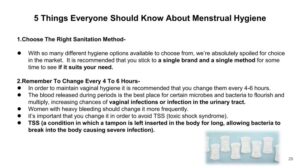
Men’s skincare routine is a crucial aspect of maintaining healthy skin, yet it is often overlooked. With the right steps, anyone can achieve a fresh and vibrant appearance. This guide will explore the fundamental elements of an effective skincare regimen, the importance of choosing the right products based on skin type, and how to seamlessly incorporate skincare into a broader health and wellness strategy.
From cleansing to sun protection, understanding what works for your unique skin is key. We will discuss essential ingredients to look for, the pitfalls to avoid, and how a comprehensive approach can enhance not just your skin but your overall well-being.
Basics of Men’s Skincare Routine

A well-rounded skincare routine is essential for maintaining healthy skin, especially for men who often overlook this aspect of their grooming regimen. Understanding the fundamental steps can make a significant difference in skin health and appearance. A consistent routine helps to cleanse, protect, and nourish the skin, preventing common issues such as dryness, irritation, and premature aging. The primary steps in a men’s skincare routine include cleansing, exfoliating, moisturizing, and sun protection.
Each of these steps plays a crucial role in promoting healthy skin and addressing specific concerns. It’s essential to choose products that cater to your skin type, which can be oily, dry, combination, or sensitive. This ensures that your skincare regimen is effective and tailored to your unique needs.
Essential Steps in Skincare Routine
Understanding the essential steps in a skincare routine is vital for achieving optimal skin health. Each step serves a specific purpose, and neglecting any of them can hinder the overall effectiveness of your regimen.
- Cleansing: Proper cleansing helps remove dirt, oil, and impurities from the skin’s surface. It’s crucial to use a cleanser suitable for your skin type to avoid stripping the skin of its natural oils.
- Exfoliating: Exfoliation removes dead skin cells, promoting cell turnover and preventing clogged pores. This step should be done 1-2 times a week, depending on your skin’s sensitivity.
- Moisturizing: Moisturizers hydrate the skin and create a barrier to prevent moisture loss. Choosing a moisturizer that fits your skin type can help maintain its balance and prevent issues like dryness or excess oil.
- Sun Protection: Daily application of sunscreen is critical to protect the skin from harmful UV rays that can cause premature aging and skin cancer. Even on cloudy days, UV rays can penetrate through clouds, making this step essential regardless of the weather.
Understanding Skin Type
Identifying your skin type is fundamental in selecting the right products and establishing an effective skincare routine. Each skin type has unique characteristics that require specific care to maintain optimal health.
- Oily Skin: Characterized by enlarged pores and a shiny appearance, oily skin requires lightweight, oil-free products to avoid exacerbating oiliness.
- Dry Skin: Dry skin often feels tight and may show flakiness. Rich, hydrating products are essential for restoring moisture and preventing irritation.
- Combination Skin: This type features both oily and dry areas, often with an oily T-zone (forehead, nose, and chin). A balanced approach using different products for various areas is crucial.
- Sensitive Skin: Sensitive skin reacts easily to products and environmental factors. Gentle, fragrance-free products are ideal for minimizing irritation and discomfort.
Common Skincare Mistakes
Being aware of common skincare mistakes can help men avoid pitfalls that lead to skin issues. Addressing these mistakes will improve the effectiveness of the routine and the overall health of the skin.
- Skipping Sunscreen: One of the biggest mistakes is neglecting sun protection. Daily sunscreen application is essential for preventing skin damage.
- Over-Exfoliating: Exfoliating too frequently can irritate the skin and compromise its barrier. It’s important to find a balance suitable for your skin type.
- Using Harsh Products: Using products containing alcohol or strong fragrances can lead to irritation and dryness. Opt for gentle, hydrating formulations instead.
- Ignoring Neck and Eye Area: Many men focus solely on their face and forget about the neck and eye areas, which also require care to prevent signs of aging.
Ingredients to Look for in Men’s Skincare Products

When selecting skincare products, understanding the ingredients is crucial for achieving healthy, radiant skin. Men’s skin tends to be thicker and oilier than women’s skin, which makes specific ingredients particularly beneficial for addressing common concerns such as oiliness, acne, and aging. Here, we will explore some of the key ingredients you should consider incorporating into your skincare routine.
Key Ingredients Beneficial for Men’s Skin
Several ingredients stand out for their effectiveness in treating various skin types and concerns. Below are some essential components to look for in men’s skincare products:
- Hyaluronic Acid: This powerful humectant draws moisture into the skin, keeping it hydrated and plump. It helps to reduce the appearance of fine lines and gives the skin a youthful glow.
- Salicylic Acid: Particularly beneficial for oily and acne-prone skin, salicylic acid penetrates pores to help clear out excess oil and dead skin cells, reducing breakouts and preventing future acne.
- Retinol: A derivative of vitamin A, retinol promotes cell turnover, helping to diminish fine lines, improve skin texture, and reduce the appearance of dark spots. It can be a game-changer for anti-aging.
Natural Versus Synthetic Ingredients
The choice between natural and synthetic ingredients can significantly affect skincare results. Natural ingredients are often derived from plants and can be gentler on the skin, making them a preferred choice for those with sensitive skin. However, they may lack the potency of synthetic ingredients, which are formulated for targeted efficacy.
Natural ingredients can provide soothing properties, while synthetic ingredients can offer more immediate results.
On the other hand, synthetic ingredients are designed to deliver specific benefits, often leading to quicker results. It’s important to consider your skin type and sensitivities when choosing between the two, as a blend of both can also be beneficial.
Fragrance-Free Products Versus Fragrance-Added Products
The inclusion of fragrance in skincare products is a significant factor to consider. Fragrance-free products are often recommended for sensitive skin, as they minimize the risk of irritation and allergic reactions. These products tend to focus on delivering active ingredients without the potential pitfalls of added scents.In contrast, products with added fragrances can provide a pleasant sensory experience and may evoke a sense of luxury or indulgence.
However, they can also lead to skin sensitivities in some individuals. When testing a new product, it’s wise to monitor how your skin reacts, especially if it contains fragrances.
Choosing fragrance-free options may be the safest route for sensitive skin, while fragrance-added products can elevate the enjoyment of your skincare routine.
Ultimately, understanding these ingredients can empower you to make informed choices that will enhance your skincare regimen and cater to your specific needs.
Integration with Overall Health and Wellness
A skincare routine is more than just a superficial practice; it can be an integral part of a comprehensive health and wellness regimen. When you view skincare through the lens of overall health, it becomes easier to understand how various aspects of your life—such as nutrition, fitness, and mental well-being—interconnect and influence your skin’s health. This holistic approach not only enhances your appearance but can also contribute to your overall sense of well-being.Nutrition plays a pivotal role in skin health, serving as the foundation for a vibrant complexion.
The foods you consume can either nourish your skin or contribute to issues such as acne, dryness, or premature aging. A diet rich in specific nutrients can help promote a healthy skin barrier, fight inflammation, and encourage cell regeneration.
Foods That Promote Healthy Skin
Incorporating certain foods into your diet can significantly enhance your skin’s appearance and health. A variety of nutrients work together to provide the necessary support for optimal skin function. The following list highlights some essential foods and their benefits for skin health:
- Fatty Fish: Rich in Omega-3 fatty acids, which help maintain skin elasticity and hydration.
- Avocados: Packed with healthy fats, vitamins E and C, promoting skin repair and reducing inflammation.
- Nuts: Especially walnuts and almonds, provide essential fatty acids and antioxidants that protect the skin.
- Sweet Potatoes: High in beta-carotene, which can help prevent skin damage from UV rays.
- Tomatoes: A great source of lycopene, which protects against sun damage and improves skin texture.
- Green Tea: Contains antioxidants that may help reduce the risk of skin cancer and prevent signs of aging.
Maintaining proper hydration is also vital for skin health. Drinking adequate water not only keeps the skin hydrated but also aids in detoxification, promoting a clearer complexion.
Comprehensive Approach to Skincare
Integrating skincare with fitness, mental health, and hydration creates a balanced approach to wellness. Each aspect supports the others, leading to improved skin health. Physical activity boosts circulation and promotes the delivery of nutrients to the skin, aiding in its repair and rejuvenation. Regular exercise also helps reduce stress levels, which can have a direct impact on skin conditions such as acne or eczema.
Mental health contributes significantly to skincare, as stress can exacerbate skin issues. Practices such as mindfulness, meditation, or simple relaxation techniques can help manage stress levels and ultimately improve skin health.Lastly, staying hydrated is essential. Aim for at least eight glasses of water a day, or more if you’re active. Hydration helps maintain the skin’s moisture balance, supports its elasticity, and can reduce the appearance of fine lines.
The synergy between a balanced diet, regular exercise, and mental well-being creates a powerful framework for enhancing your skin’s health and appearance.
Outcome Summary
In conclusion, establishing a consistent men’s skincare routine is not just about aesthetics; it’s about nurturing your skin as part of a holistic approach to health. By being mindful of the products you use and the lifestyle choices you make, you can achieve and maintain healthy skin. Remember, great skin doesn’t just happen; it’s a result of informed choices and regular care.
FAQ
What is the first step in a men’s skincare routine?
The first step is cleansing, which removes dirt, oil, and impurities from the skin.
How often should men exfoliate their skin?
Men should ideally exfoliate 1-2 times a week to remove dead skin cells and promote cell turnover.
Can men use women’s skincare products?
While it’s possible, men should choose products formulated for their skin type and concerns for the best results.
Is sunscreen necessary even in winter?
Yes, sunscreen is essential year-round to protect against UV damage, which can occur in any season.
How can diet affect skin health?
A balanced diet rich in vitamins, minerals, and hydration can significantly improve skin texture and appearance.





